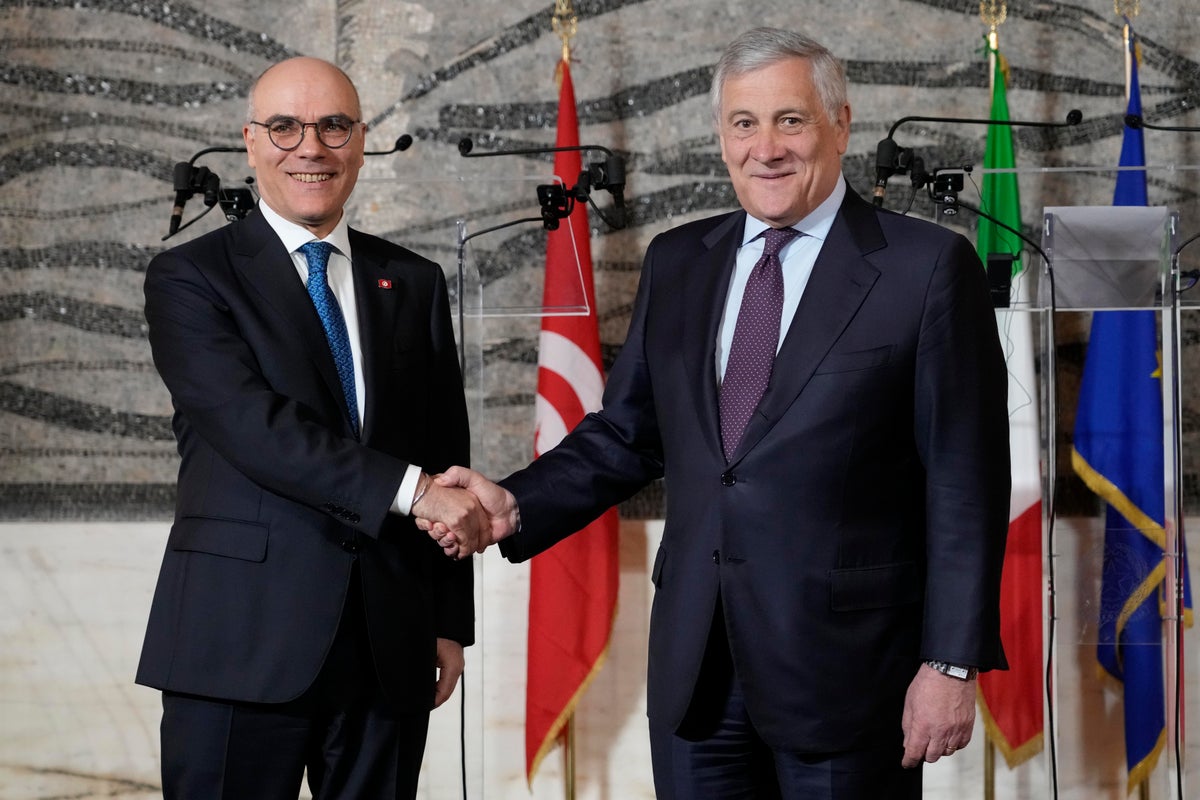
Italy on Thursday vowed a host of investments in Tunisia and help negotiating an International Monetary Fund bailout as Rome seeks to stabilize the North African country's economic crisis and stem the increased number of migrants coming to the European nation.
Foreign Minister Antonio Tajani outlined Italy’s efforts and pledges during a meeting with his Tunisian counterpart, Nabil Ammar, who insisted that Tunisia has seen growing numbers of African migrants arriving from the Libyan border and needs economic help.
The Organization for Economic Cooperation and Development says Tunisia is experiencing its worst crisis in a generation, with inflation hovering around 11% and food increasingly scarce. The government is negotiating a $2 billion to $4 billion loan with the IMF to cope with a budget deficit aggravated by the COVID-19 pandemic and fallout from Russia’s war in Ukraine.
But in return for a deal, Tunisia would have to commit to painful reforms, including shrinking the public administration sector — one of the world’s largest — which eats up about a third of the state budget. The IMF also is demanding the gradual lifting of subsidies and the privatization of state-owned enterprises, which implies massive layoffs and a worsening of unemployment.
Tajani vowed to work on Tunisia’s behalf in negotiations with the IMF, repeating Italy’s proposal that the loan be delivered in two tranches and not be fully dependent on all reforms being in place. Italy wants a stable and prosperous Tunisia because it has become a major point of departure for some of the 31,000 migrants who have reached Italy so far this year.
“For us, the fundamental point is to guarantee the stability of Tunisia,” Tajani said.
While stressing that Italy cannot act as a “colonizer” and demand reforms on the Tunis government, he said the international community cannot underestimate the strategic importance of Tunisia in the Mediterranean and North African region.
“Because there are other interests — and I’m thinking of Russia and even China — that are arriving," he said.
Most of the migrants leaving Tunisia aren’t Tunisian. Italian interior ministry data shows that most migrants who have arrived in Italy this year from all migration routes hail from Ivory Coast, followed by Guinea and Pakistan. Tunisians are in fourth place, with around 2,450 people arriving in Italy.
Tajani announced the negotiation of a pilot project to encourage legal migration from Tunisia, saying plans call for an initial 4,000 Tunisians to be trained in their country for various jobs in Italy. That is in addition to the number of Tunisians accepted by Italy each year, Tajani said.
Italy also plans to sponsor an investment conference in Tunisia later this year with the participation of Italian companies to bolster direct investment in small to medium businesses, Tajani said. He vowed short-, medium- and long-term investments.
Ammar, who didn’t stay to take questions at the press conference, vowed that Tunisia was interested in collaborating with Italy on the migration dossier.
“Populations must stay on their territory, and there is a considerable potential in this area,” he said.







